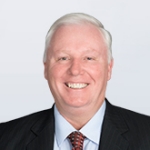Is Your Workplace Risk Ready?
The Australian workplace continues to evolve, presenting employers with a range of challenges to the way they manage and interact with their workforce. Issues such as proactive work, health and safety management and leadership, mental health, stress and colleague wellbeing, and dealing with a new workers compensation insurance regulator and insurer regime will require organisations to build more resilient businesses.
2017 marks the 10th anniversary of the Workforce Strategies Forum, presented as part of the Marsh Academy of Risk series. Originating from Sydney, which has since been extended to Melbourne, the Forum’s theme this year is Workplace Risk Ready – Preparing Strategies for the Future.
The forum brings together a strong mix of industry leaders, academics and practitioners to drive discussions around the changes now facing organisations and the strategies that can be employed to respond to them. Some of the key topics address:
New economy, future work
There is much talk of a so-called “new economy” emerging in the coming decade, spurred by new business models such as UBER and Amazon, the growth of new technologies in the form of robotics and artificial intelligence (AI), and new ideas about the design of jobs and workplaces. For many, the question is whether we face a seismic shift in the way work is done or if we’re simply witnessing another step in the normal innovation and change that is part of the global economy.
Work from home: Employer liability issues
Developments in technology and increasing pressure for employers to accommodate flexible work arrangements have seen working from home become a prevalent practice across many industries. Employers need to have a good grasp on the various facets of legal requirements, HR and safety concerns when considering requests to work from home and implementing effective policies and procedures. It is also interesting to see how workers compensation legislation has responded to injuries sustained by employees working from home through recent case law examples across multiple state jurisdictions.
Managing the risks of a mobile workforce
Extending on from the previous topic, the changing notion of the workplace demands employers adjust their approach accordingly to manage and support dispersed teams across multiple cities, countries, geographies, time zones and environments. Recent incidents in Australia and abroad have put employee safety and security at the forefront of many employers’ minds. Organisations are now taking stock of their preparedness to protect and assist employees during a crisis, wherever they might be in the world. For many employers, it is not solely a matter of legal Duty of Care responsibilities, or potential legal implications but, more critically, about ensuring the safety and wellbeing of their workers as a building block for business continuity resilience.
A strategic approach to health and wellbeing
Most organisations understand the benefits of a health and wellbeing program but, for many, achieving the desired outcomes and a measurable return remains out of reach. We explore some of the key reasons many programs don’t succeed or fail to engage the most “at risk” workers.
The challenges of tackling mental health and wellbeing
In Australia, beyondblue estimates that 45% of the population will experience a mental health condition in their lifetime. In any given year, around 1 million Australian adults have depression, and more than 2 million will experience anxiety. Other studies have shown that mental ill health can be particularly prevalent in high-pressure work environments, where the employer’s role in addressing mental health in their workplaces becomes even more critical.
We take you through the design and implementation of one organisation’s journey to developing a mental health and wellbeing program, including the business case for the program and its ongoing evaluation and monitoring.
Returning to work after an injury
As a workers compensation professional with over 26 years of experience, Michelle Kiobas from Marsh Workforce Strategies shares her return to work journey after being injured in the Bourke Street Mall incident in January 2017. As she continues to recover from her injuries, the past eight months have given Michelle insight into the life of an injured worker, highlighting the challenges as well as the factors that are integral to an employee’s successful return to work.
Economic burden of physical inactivity
Physical inactivity is recognised as a global pandemic that not only leads to diseases and early deaths, but imposes a major burden to the economy. The latest academic research into the financial cost of physical inactivity examines the direct healthcare cost, productivity losses, and disability-adjusted life years for the five major NCDs attributable to inactivity: coronary heart disease, stroke, type 2 diabetes, breast cancer and colon cancer.
It takes change to make change
What happens when a major acquisition significantly alters your organisation’s employee base, and dramatically changes its culture and risk profile? One Australian organisation’s approach to change saw them lead the safety agenda through their business transformation, helping them to achieve safety and workers compensation outcomes.
The 2017 Workforce Strategies Forums will be held on Tuesday 17 October (Melbourne @ Marsh Offices) and Thursday 19 October (Sydney @ Dockside, Darling Harbour). Both events are now at full capacity. Please contact gina.spyrou@marsh.com to register your interest for next year. Keep an eye out for Marsh INSIGHTS articles that may explore these topics in more detail following the event.
We would like to gratefully acknowledge Employers Mutual (EML), the event’s official sponsor, and extend our thanks to all the speakers and presenters.

